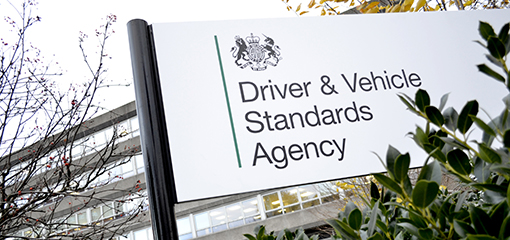When you have a lot of people performing the same role, but working across the nation, it’s a challenge to get everyone doing things the same way. But this is what customers both deserve and expect. So how do we make sure our approach in the test lane and at the roadside is consistent?
Standards
The standards we apply are clearly defined in our main publications:
- the 4 inspection manuals for annual test: motorbikes, cars, trucks and buses
- Categorisation of Defects
These standards are based on international type approval standards, or regulations and directives. But not everything we examine can be dealt with that way. In some cases we do our own research, often involving industry partners, to get a reasonable consensus view that we can all understand and apply.
Training
We train our examiners and inspectors to understand these standards and the methods they need to apply them. But they don’t just sit in a classroom with a tutor and pop into the workshop for a practical test. We also use educational methods such as operational instructions, briefings, memos and more to keep staff up-to-date.
Monitoring
We have a lot of data about what our staff are doing and how they're performing. Our internal quality control system is tiered – it starts with manager monitoring and is ultimately overseen by a Quality Assurance & Improvement team with oversight of how we, as an agency, perform against national standards.
Monitoring also includes feedback through customer praise and complaints. From this feedback we can establish which standards are causing concern and clarify them if issues are identified.
Discretion
Because your encounters with us are rarely under identical circumstances, the Secretary of State for Transport authorises our examiners (under Warrant) to use their discretion. We are required by law to treat cases on their own merit and to apply reasonable and proportionate sanctions. This can sometimes give the impression that we are not applying the rules consistently. But sometimes the nuances of a situation mean that we have to take a different approach than the manuals advise.
All of our training, education and monitoring helps to guide examiners to make the right decisions. Examiners know they may have to explain themselves if they haven't followed the guidance available, to show that their approach is reasonable and justifiable. If we were to treat every case the same way, no matter what the circumstances are, we wouldn’t be doing our jobs properly. And we don’t believe you want robots to pass or prohibit your vehicles, but real people with the ability to judge the situation fairly.
Integrity
We sometimes hear the concern that if a customer makes a complaint or otherwise challenges us, then we will single them out for special attention. This is wholly incorrect. Our targeting systems are based on our records of the state of your vehicles, not whether you have complained or challenged us.
We don't maintain a list of ‘troublemakers’. We know that we are using human beings at the roadside and in the test lanes and that, because we’re human, we can sometimes make errors of judgment or misinterpret matters.
We rely on you to tell us if you think we’re wrong, so that we can investigate and, if necessary, correct the situation. But we'll never victimise you for helping us to improve or asking us to explain ourselves, and will act with professional integrity.

Leave a comment